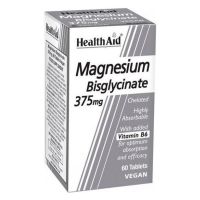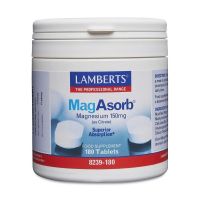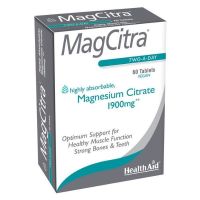-
Free shipping
with purchases
over €39 - 100% Refund withing 14 days
- Free Mini products
-
2310 44 44 22
Telephone service
and orders
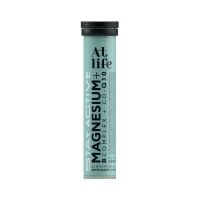
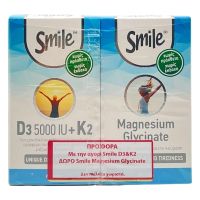
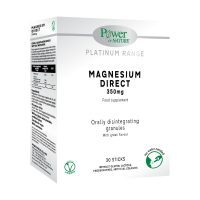

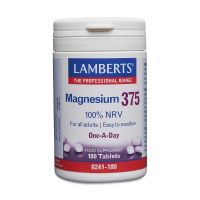


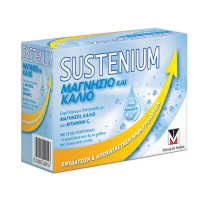


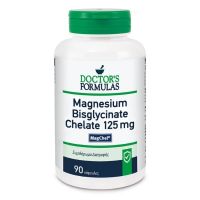
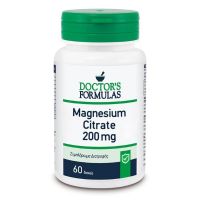


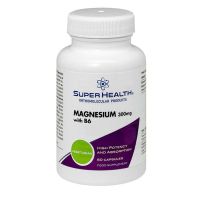
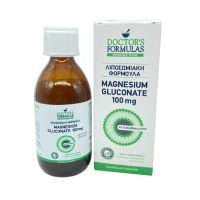

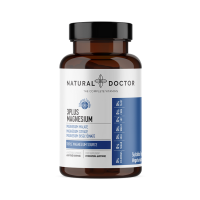

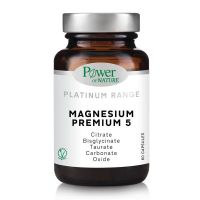


Information - Magnesium
What is magnesium?
Magnesium is an essential mineral for the body. After calcium, it is the second most abundant mineral in the body and essential in over 300 metabolic and biochemical processes in the body.
It is found mainly in the bones and tissues of the various organs. Its absorption takes place mainly in the small intestine and its excretion through the kidneys and large intestine.
Our body does not have the ability to produce magnesium and for this reason it is necessary to take it daily through the diet.
Magnesium: Properties & Benefits
Magnesium has many benefits and properties, since it contributes to:
- In reducing fatigue*
- In electrolyte balance*
- In the normal metabolism of energy efficiency*
- In the normal functioning of the nervous system and muscles*
- In normal protein synthesis*
- In normal psychological functioning*
- In maintaining normal bones and teeth*
- In the process of cell division*
In addition, it has been characterized for its excellent actions in the treatment of migraine, tendinitis, cervical and of course in improving sleep. It contributes to the "rest"-relaxation of the muscles (for this reason it is indicated for muscle cramps), while giving a restful and quality sleep.
Because of its importance in bone health, you will find it in nutritional supplements along with Vitamin D, calcium and Vitamin K.
In addition, together with melatonin, it is considered an excellent aid in cases of insomnia, while its combination with Vitamin B6 and inositol contributes to reducing anxiety and improving psychology.
Finally, studies prove its excellent contribution to the treatment of tinnitus.
Magnesium: Foods and sources
Foods rich in magnesium are:
- green leafy vegetables (such as spinach),
- cereals,
- wholemeal bread,
- brown rice,
- legumes,
- nuts
In general, foods containing dietary fiber provide magnesium.
In which forms do we find it?
In dietary supplements it is available in capsule, tablet, effervescent tablets, chewable tablets, crystals or powder, liquid or liposomal form. 30-40% of the ingested magnesium from food supplements is absorbed by the body.
It is recommended to be taken in the morning and/or evening after meals or according to the manufacturer's instructions. It is often found in the formula in combination with vitamin B6, vitamin B complex or with herbs.
Which magnesium should I take? There are many different forms of magnesium that differ in their bioavailability and activity.
- Chelated magnesium. Magnesium lactate, glycinate, aspartate, malate, and arginate belong to the magnesium chelate category and are considered highly bioavailable.
- Magnesium Oxide. With low levels of bioavailability, it serves as an antacid and laxative.
- Magnesium citrate. It has a lower content of elemental magnesium, but shows high bioavailability and is considered economical.
- Magnesium sulphate (Magnesium sulphate – Epsom salt). It is an inorganic form of magnesium and contains less than 10% elemental magnesium. At the same time, it has low bioavailability. It is the well-known Epsom salt.
- Other available forms of magnesium: They are magnesium orotate, magnesium threonate, magnesium chloride, magnesium lactate and magnesium carbonate.
Magnesium deficiency: symptoms
Magnesium deficiency due to low intake in healthy individuals is not very common, and for this reason the kidneys normally limit its loss in the urine in these cases.
Deficiency symptoms include:
- loss of appetite,
- nausea and vomiting,
- cramps,
- fatigue and weakness.
As magnesium deficiency worsens, numbness, tingling, muscle twitching, abnormal heart rhythms, and hypocalcemia or hypokalemia may occur.
Factors that can lead to magnesium deficiency are, in addition to insufficient nutrition:
- the exhausting weight loss diets,
- diarrhea,
- prolonged exercise
- and excessive sweating.
People with gastrointestinal diseases (Crohn's disease, celiac disease), with type 2 diabetes, with alcoholism and the elderly are more likely to suffer from magnesium deficiency, because they usually consume insufficient amounts or receive treatment that reduces the absorption of magnesium from the intestine or increases losses from the body.
Recommended Daily Intake (RDI)
The recommended daily intake for adults is 320 mg for women and 420 mg for men. These are also the mgs that are recommended to be taken daily with a maximum of 500 mg.
Doses higher than 2000 mg per day are only suitable for a short period of time and always under medical supervision ablution.
Overdose and especially after taking magnesium chloride, gluconate and oxide may cause gastrointestinal disturbances and stomach problems (nausea, diarrhoea, abdominal cramps).
Megadoses of more than 5000 mg per day should be avoided as they pose health risks.
The recommended daily intake is 80-200 mg for children and adolescents. In pregnancy and while breastfeeding, women can take 360-400 mg of magnesium daily.
Children and pregnant women should avoid taking more than recommended unless there is a relevant instruction from the doctor.
Magnesium: Side effects, contraindications & precautions
Magnesium should only be taken with a prescription in cases of kidney or cardiovascular disease. Its bioavailability increases with the simultaneous intake of vitamin D, while it decreases with the intake of plant fibers.
Taking during pregnancy and breastfeeding is safe with medical supervision.
*The above are official health claims from the European Food Safety Authority (EFSA)
Liability Disclaimer
Vita4you informs you that nutritional supplements are not a substitute for a balanced diet, a healthy lifestyle or medical advice/opinion, are not medicines and are not intended to prevent, treat or cure human disease.
Vita4you makes every effort to ensure the accuracy and scientific validity of the information provided on the website. In case you find any discrepancy or have any question about the content please contact us.
